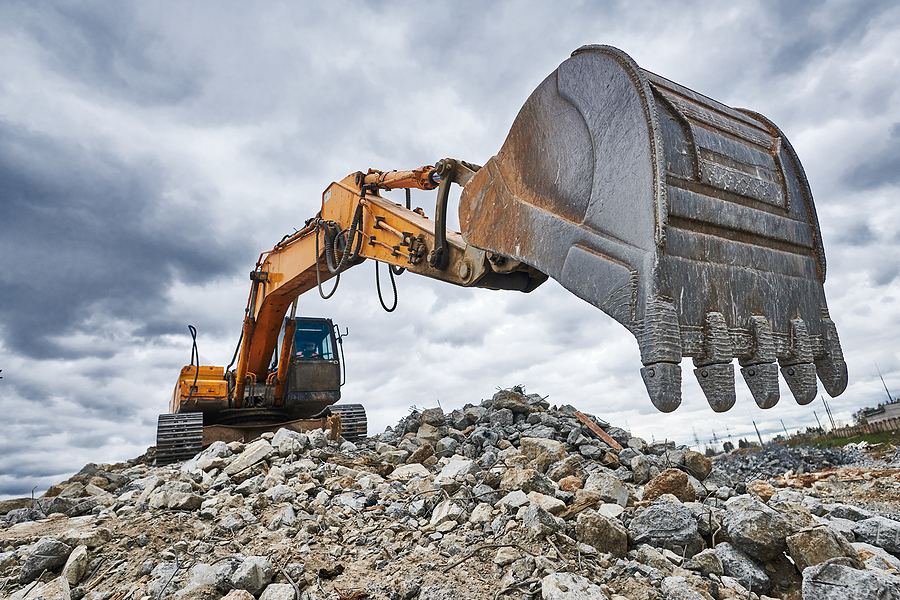Besides the standard excavator, there several other types of excavators to choose from. Which is best for your job?
An excavator is an essential machinery for construction, earthmoving operations, and demolitions. An excavator’s unique features include a rotating cab, bucket, an arm, and movable tracks.
Different excavators are suited for diverse roles. A construction company building a bridge in the sea can’t use the same equipment as one conducting a simple loading operation. So, how do you settle for the right excavator?
Here are some examples to guide you.
1. Backhoe Excavator
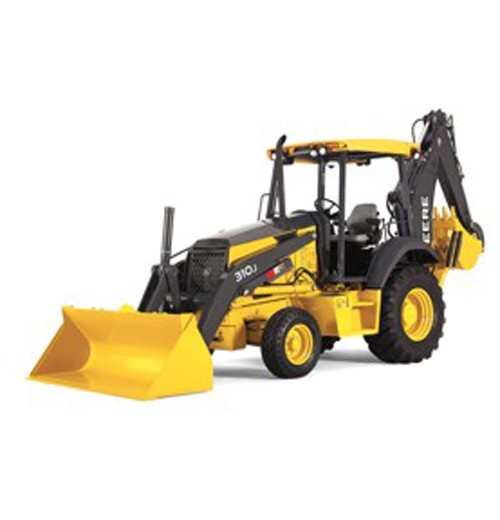
You can find a backhoe excavator in many operations like mining, construction, and earthmoving operations. People often confuse a backhoe excavator with a standard excavator; however, the backhoe has a boom excavator attached at the back.
Some of the main parts of backhoe excavators include:
- Loader bucket
- Backhoe boom
- Stabilizer arm and cylinder
- Backhoe back cylinder
- Loader lift arm
A backhoe excavator is a very versatile piece of equipment. In addition to digging, it can level, grade soil, and move large volumes quickly. You can also add other attachments to expand its capabilities.
A point to note: The excavator arm at the rear part of the excavator rotates to 200 degrees only.
2. Dragline Excavator
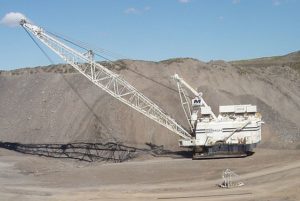
This refers to heavy-duty equipment used for large operations like mining, deep excavation, and underwater operations. The dragline excavator uses a bucket system that operates using a series of wire ropes and chains.
When dumping the content, the excavator rotates to the dumping area and releases the bucket. The dragline excavator can dig to a depth of 65 meters. On the other hand, its large and inflexible nature limits its use and application.
3. Hydraulic Shovels
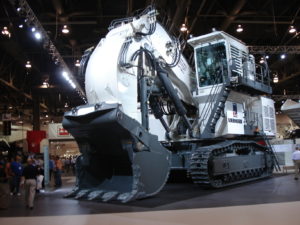
The hydraulic shovel is another heavy-duty equipment for mining and deep digging operations. It consists of a large arm and bucket that hauls rocks, minerals, and heavy objects. Besides mining, a hydraulic shovel is suitable for any operation that requires the moving of heavy rocks or materials.
A point to note: The large size of hydraulic shovels makes it less ideal for regular construction jobs — it’s less versatile but highly effective in intense digging jobs.
4. Standard Excavator
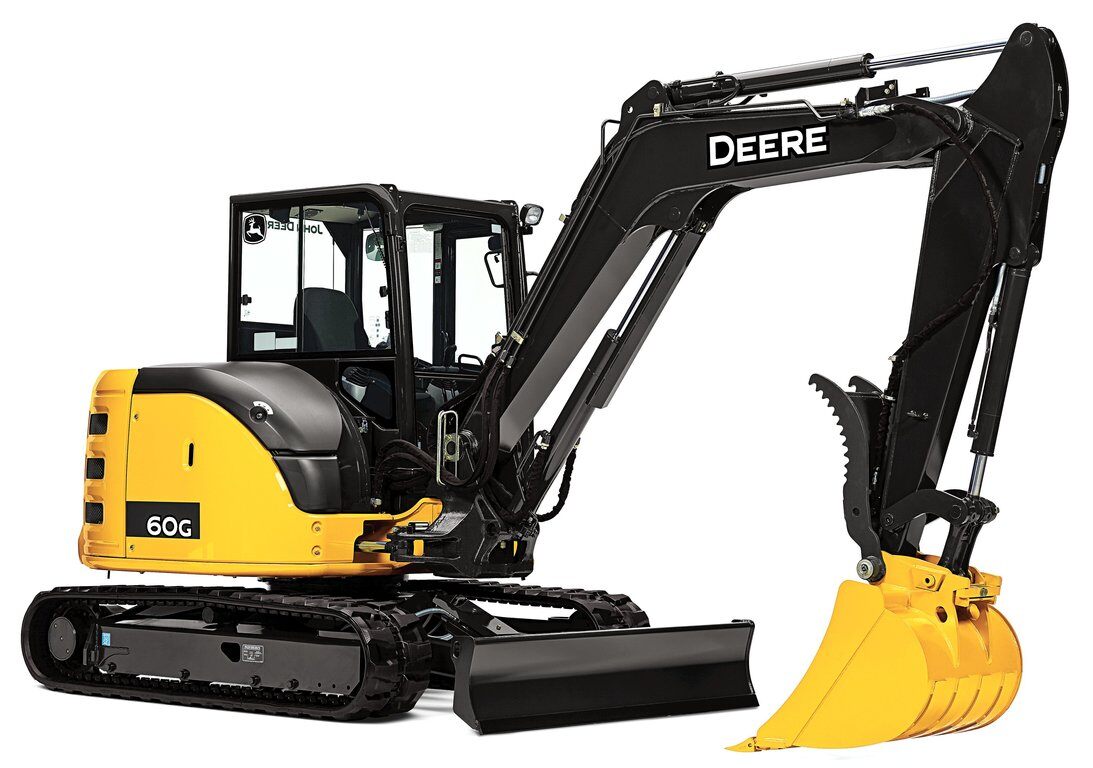
A standard excavator has basic functions and comprises a boom, stick, and bucket. The bucket arm extends and lowers to dig up materials and then retracts towards the machine to lift the bucket.
Here are key features of a standard excavator:
- Rotation: The excavator stick can rotate up to 360 degrees while the machine is stationary. The unlimited movement allows the operator to dig, move, level, and dump materials with ease.
- Parallel tracks: The two tracks provide stability during the excavation of hilly or sloppy landscapes.
- Minimal pressure: The excavator exerts minimal pressure on the soil, making it particularly ideal for working on soft grounds.
- Different Sizes: You can find mini-excavators for light jobs to large excavators for heavy-duty operations. It’s also possible to request a sizeable boom or bucket depending on the job’s complex nature.
A standard excavator is critical equipment in construction, farming, mining, and other operations that require excavation.
5. Wheeled Excavator
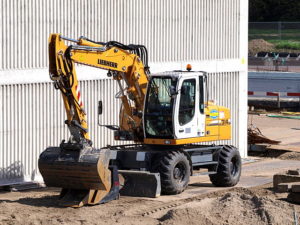
Wheeled excavators are designed just like a standard excavator, but they run on wheels instead of tracks. Wheels also exert massive pressure on the ground, which makes them suitable for hard terrains like concrete.
Here’s what you need to know about wheeled excavators.
- The wheels make it easy to transport materials to and from the site saving time and money.
- It’s not ideal for sloppy or hilly terrains.
- The wheels improve handling, speed, and navigation on construction sites with even grounds.
Conclusion
The success of a construction operation directly correlates with the choice of equipment like an excavator. As such, it’s certainly prudent to work with a company like Vandalia Rental that stocks all kinds of earthmoving equipment. From the testimonials, customers love our service, team, and turn-around time. Contact us today for more information on the kind of excavator that will best suit your needs.


